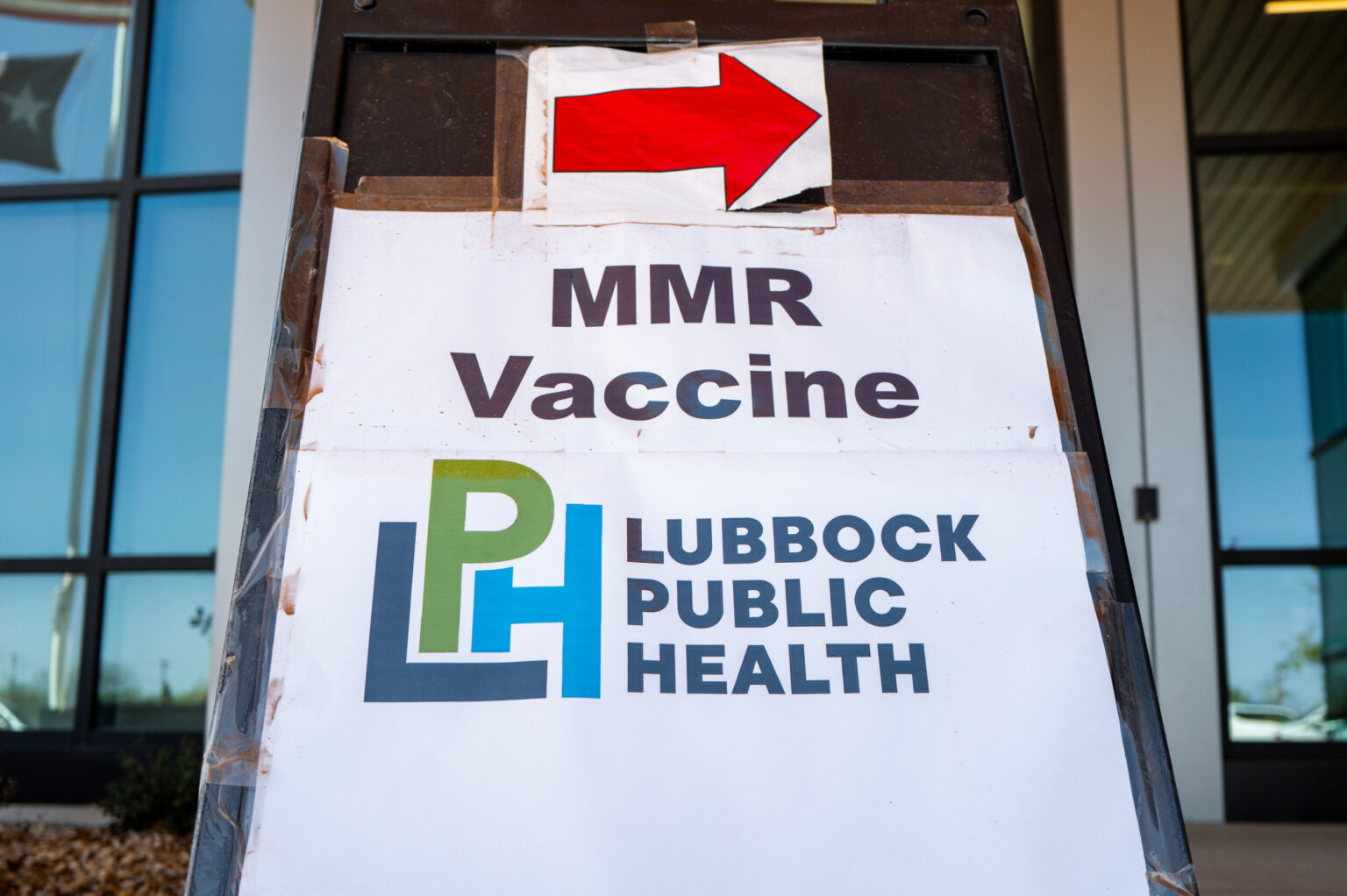Measles vaccination rates among babies in Texas have increased more than 30-fold in some instances as parents are “really scared” about an outbreak in the western portion of the state.
Lara Anton, a spokesperson for the Texas Department of State Health Services, told Newsweek that because of the West Texas outbreak, the agency recommended that infants living in or visiting outbreak-designated counties get an early (zero) dose of the measles vaccine at 6 to 11 months.
Why It Matters
In February, Texas experienced its biggest measles outbreak in about three decades. West Texas saw an influx of almost 50 cases, and health officials attributed the drastic uptick to a close-knit, undervaccinated Mennonite community. Cases have continued to rise in the months since, leading to hospitalizations and the deaths of two children.
What To Know
The ongoing situation has resulted in Texas parents being more proactive to vaccinate their babies than in years past.
Truveta, a health care and analytics company, shared internal data showing that about 10 percent of 10-month-old children in Texas had received at least one measles vaccine in April alone—about 10.4-fold higher than the January 2024 to January 2025 average.
Also in April, about 8.7 percent of 6-month-olds in Texas received a measles vaccine. That’s a 31.7-fold increase compared to the 0.3 percent averaged between January 2024 and January 2025.
In March and April, about 20.1 percent of all first measles vaccines were administered to children between 6 and 11 months—an 11.5-fold increase compared to 2019, when international and domestic outbreaks were ongoing.
“It does show that parents really are scared, and that parents don’t want to wait,” Nina Masters, a senior applied research scientist at Truveta, told the Texas Tribune. “They don’t want to wait 12 months to get their child vaccinated. They want to wait six months and one day, and they want to do it as soon as they can.”
Newsweek has contacted Truveta for comment.
The Centers for Disease Control recommends the first measles vaccine (administered in the U.S. as the combined measles, mumps, rubella vaccine, or MMR or MMRV) to be issued between 12 and 15 months, with a later dose around kindergarten age—i.e., ages 4 to 6.
However, Truveta data from 2020 to 2024 found a “stark decline” in the number of kids overall receiving the vaccine on time.
Anton said children who received an early dose of the measles vaccine should still get the two regularly scheduled doses, meaning they would ultimately get three doses of MMR—with the second dose coming at least 28 days after the early dose.
DSHS data showed that between January 1 and April 30, 51,275 doses were administered—including 44,168 to children 12 to 15 months. In 2019, the annual total was 54,184.
However, the Texas immunization registry requires people to opt in. As most Texans have not done so, the overall count of early MMR vaccines administered during this time period could be different, the DSHS spokesperson added.
DSHS, which provides two weekly updates on cases, said on May 20 that 722 cases had been confirmed statewide since late January. Less than 1 percent, or fewer than 10 of the confirmed cases, are estimated to be actively infectious since their rash onset date was less than a week ago. Individuals are described as infectious four days prior to and four days after rash onset.
Of those 722 cases, 92 of them have led to hospitalizations. Two children have died, including an 8-year-old girl in Lubbock. She died of “measles pulmonary failure” in April at UMC Health System.
DSHS said the following counties had ongoing measles transmission: Cochran, Dawson, Gaines, Lamar, Lubbock, Terry and Yoakum. On Tuesday, Dallam was removed from the list of designated outbreak counties because it had been 42 days, or two incubation periods, since the last infectious case.
There have been 15 documented measles cases outside the West Texas region this year.
DSHS reported that of the 722 confirmed cases, 688 were found in unvaccinated individuals or those with an unknown vaccination status, while 19 individuals who received two-plus doses of the MMR vaccine were infected.
What People Are Saying
Lara Anton, a spokesperson for the Texas Department of State Health Services, told Newsweek: “DSHS has been encouraging people to get vaccinated if they are not immune to measles because it is the best way to prevent illness and stop the virus from spreading.”
Miranda Yaver, an assistant professor of health policy and management at the University of Pittsburgh, told Newsweek: “We now have over 1,000 confirmed measles cases in the United States, and this is avoidable with vaccination, which we know to be safe and effective. We are seeing the proliferation of vaccine hesitancy, with a pronounced partisan split, extending well beyond the COVID vaccine. As secretary of Health and Human Services, Robert F. Kennedy Jr. has immense power and responsibility to promote vaccine safety and efficacy, especially amid these outbreaks that have resulted in some tragic deaths.”
Kala Hunter, a Texas mother of a 2-year-old son, told NBC News: “Being in the hotbed of the measles outbreak, it was a no-brainer. If it was safe to get him vaccinated early, we were going to protect him.”
What Happens Next
DSHS said in its May 20 assessment, “Due to the highly contagious nature of this disease, additional cases are likely to occur in the outbreak area and the surrounding communities.”
The national conversation around vaccines is also set to continue. Earlier this month, when asked whether he would vaccinate his own children against diseases such as measles, Health and Human Services Secretary Robert F. Kennedy Jr. told the House Appropriations Committee: “My opinions about vaccines are irrelevant. I don’t think people should be taking advice, medical advice from me. I don’t want to give advice.”
Read the full article here

